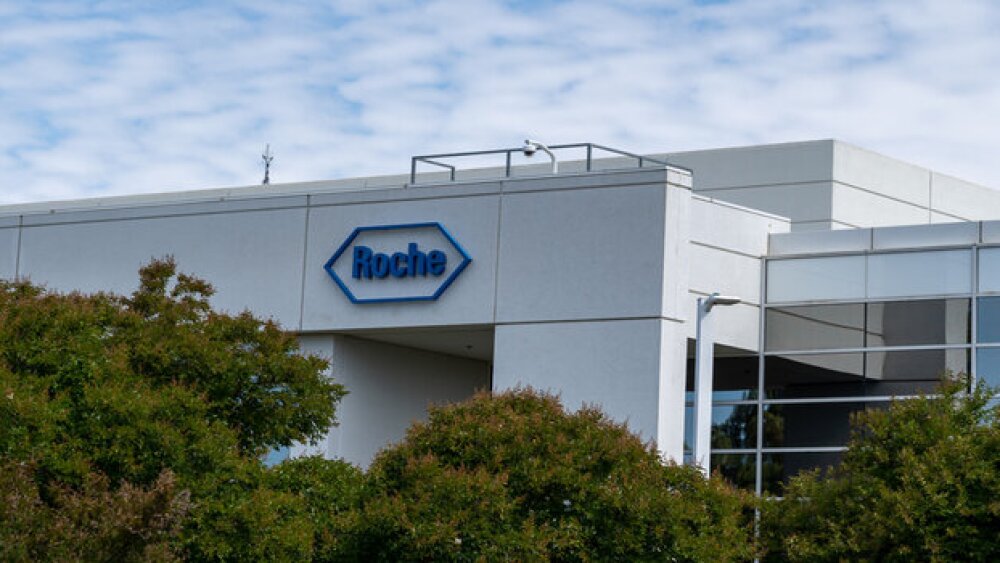A combination of Roche’s investigational treatment with Ibrance and fulvestrant met its primary endpoint of progression-free survival in the first-line setting in treating PIK3CA-mutated breast cancer.
Pictured: Roche’s building in California/iStock, JHVEPhoto
Roche’s Genentech announced on Tuesday that the primary endpoint of progression-free survival was hit in the INAVO120 study, investigating inavolisib in combination with Ibrance and fulvestrant.
The combination is designed to act as a first-line treatment in patients with PIK3CA-mutated, hormone receptor (HR)-positive, HER2-negative, endocrine-resistant, locally advanced or metastatic breast cancer.
Tuesday’s announcement said that the survival data was statistically significant against fulvestrant and Ibrance alone but the data is immature. Genentech emphasized that “a clear positive trend” had been noticed and that more follow-ups would be conducted. The combination was also well tolerated by patients with no new safety issues.
Genentech plans to unveil all the data at a future unspecified medical meeting.
“These pivotal study results for this inavolisib combination represent a transformative medical advance for people with PIK3CA-mutated HR-positive breast cancer,” Levi Garraway, Genentech’s CMO and head of global product development, said in a statement. “We are excited about the opportunity to expand our portfolio of breast cancer medicines into the HR-positive space and bring this potentially best-in-class new treatment option to patients as quickly as possible.”
Inabolisib is an oral drug with two mechanisms of action, including a high in vitro potency and selectivity for the PI3Kα inhibition, and explicitly triggers the breakdown of mutant PI3Kα protein, according to Genentech. Mutations in this protein may lead to uncontrolled tumor growth and disease progression, as well as the disease being able to withstand endocrine-based treatments.
While Genentech continues to tout its inhibitor, other biotechs are giving the company competition in the space. In April 2023, Relay Therapeutics announced that its PI3Kα inhibitor, RLY-2608, had reached target exposure of around 80% with multiple doses. Meanwhile, Scorpion Therapeutics dosed its first patient with its inhibitor in May 2023. Both Relay’s and Scorpion’s treatments are being investigated as monotherapies.
So far, the only PIK3CA inhibitor on the market is Novartis’ Piqray, which was FDA-approved to treat breast cancer in May 2019. In the first nine months of 2023, Piqray brought in $374 million.
Tyler Patchen is a staff writer at BioSpace. You can reach him at tyler.patchen@biospace.com. Follow him on LinkedIn.






